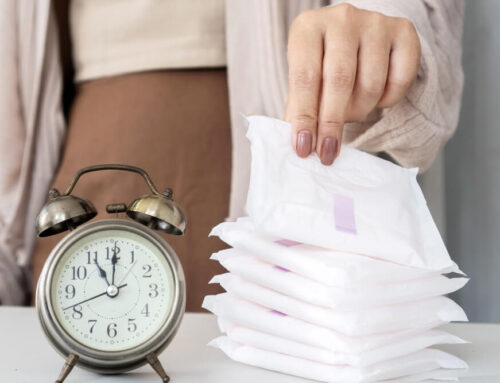The outer part of the female genitalia is called a vulva. The vulvar area consists of labia majora (outside), labia minora (inside), part of the clitoris, and the urethral and vaginal openings. The primary role of the vulva is to offer protection for the internal parts of the female reproductive system. Having an inflamed vulva can cause different issues within the system as well, so it is crucial to practice regular gynecological care and speak to your doctor if you notice unusual symptoms.
Dermatitis as a skin condition includes skin irritation, rash, hives, etc., which can be caused by different factors, from genetics, infections, and allergies to the immune system and its reactions to different external stimuli.
Vulvar dermatitis is quite a frequent skin condition affecting the portions of the skin on and around the vaginal opening. It most often occurs in the places where the skin folds or on the skin between the buttocks. Although most cases of vulvar dermatitis can be treated quite simply, do not forget to consult with an expert on these topics, such as the doctors at the Women’s Health Partners, and receive proper diagnosis and guidance.
What Is Vulvar Dermatitis?
As previously explained, vulvar dermatitis is a skin condition that occurs in the region of the vulva, especially in the places where the skin is folded. This type of condition is often referred to as vulvitis or inflammation, and it can include two types:
- Atopic dermatitis or vulvar eczema and
- Contact dermatitis on the vulva
In both of these cases, the symptoms can include vulvar itching, which signals that an external factor has caused vulvar skin damage or an allergic reaction.
Symptoms can vary from person to person, but generally, they include:
- Mild or severe itching
- Swelling in the vulvar area
- Thick white skin patches
- Fluid coming from the vulva
- Burning sensation
- Vulvar tenderness
- Irritation
- Redness of the vulvar area
- Pain during sexual intercourse, tampon, or speculum insertion
- Discomfort during sexual intercourse
Experts say that the symptoms can worsen at night, when you are having sexual intercourse, or when you are on your period.
Main Reasons for Vulvar Dermatitis

In general, the vulvar skin is very sensitive, so that damage might occur often. Although the vulva is seen as a protector and a barrier, it is quite fragile when it comes to protecting the system from allergens and irritants. Considering that vulvar dermatitis is seen as a consequence of contact dermatitis on the vulva, it is clear that having contact with external factors such as heat, moisture, different products, allergens, etc., causes the symptoms mentioned above.
Substances seen as potential causes of vulvar dermatitis are:
- Deodorants
- Perfumes
- Douches and other feminine hygiene products
- Soaps
- Shampoos and hair conditioners
- Laundry detergents
- Pads, tampons
- Synthetic underwear materials
- Food preservatives
- Excessive washing
- Medication
- Rubber products (gloves, condoms, etc.)
- Spermicide
- Dyes
- Urinary incontinence, which causes low control over urination or defecation, leaving residue
Contact dermatitis on the vulva can be either the irritant or the allergic type, depending on whether the external substance is irritating the outer layer of the skin or it is causing an allergic reaction.
Be aware that vulvar dermatitis can sometimes last for a few weeks, sometimes up to one month, so make sure you are in contact with an experienced professional who is guiding you through your treatment path.
Diagnosis of Vulvar Dermatitis
Vulvar itching can also be caused by vaginal eczema, different infections, psoriasis, pubic lice, lichen planus, vaginal cancer, vulvodynia, yeast, etc., so it is essential that you schedule an appointment with your chosen doctor and discuss your particular symptoms to eliminate some other potential diagnoses.
In most cases, the medical provider will speak to you about your medical history and current lifestyle routines, as well as your symptoms and their severity. Tests that are often done to find the proper diagnosis include a physical (pelvic) exam, testing the vaginal discharge and urine, patch testing, and a biopsy. Patch testing is used to identify potential allergens causing the itching, and a biopsy is done when the provider suspects that you might be suffering from cervical dysplasia, vulvar cancer, and other problematic conditions.
Vulvar Dermatitis Treatment
Regarding treatment tactics for vulvar dermatitis, there are a few paths your provider can recommend. First, it would be quite useful if you are able to recognize what triggers your condition so that you can avoid exposure to those factors. This is where your doctor plays a significant role, so do not miss this step.
After you have a proper diagnosis and you have started working on eliminating triggers, here are some other options you can try:
- At-home remedies: using a cold cloth on the irritated area, washing clothes regularly with mild detergent, washing the vulvar area with very mild soap and lukewarm water once a day (not more) using your fingers, not a cloth, patting the area with a clean towel every time, wearing 100% cotton underwear as well as loose-fitting clothes, avoiding douching and usage of scented female hygiene products as well as baby wipes, using unscented toilet paper and cotton sanitary pads, avoiding shaving the vulva, and alike.
- Medication: various creams, pills, and ointments are available for vulvar dermatitis treatment, such as anti-itch medication, corticosteroid ointments, or anti-itch emollients.
Sexual intercourse with vulvar dermatitis is safe in the context of the condition not being contagious. This said it is essential to underline that you might feel more extensive pain and discomfort if you are practicing sexual relations while having this condition.
It is recommended that you let your body heal before going back to intimate relations, but if you do decide to engage in sex when going through vulvar dermatitis, here are some tips to help you out:
- Do not use spermicide-containing or scented and flavored condoms
- Instead of artificial lubrication, use natural oils such as coconut oil
- Avoid using scented or perfumed care products
- Soaps (especially those with deodorants, colors, or perfumes)
- Pads (especially when worn everyday)
Can Vulvar Dermatitis Be Prevented?
Unfortunately, if genetics is the reason why you developed vulvar dermatitis, then there is not much you can do about risk reduction. But, if you discover that you are allergic to certain substances or they cause vulvar irritation, refrain from using them, and that is the best prevention tactic for this condition, regardless of whether it is vaginal eczema or contact dermatitis on the vulva.
When Should I Call a Doctor?

Although vulvar dermatitis is not seen as a severe condition, and the symptoms improve quite fast, certain signs should be taken into consideration when deciding whether or not to call a doctor.
If you start experiencing an increase in swelling, pain, or burning, or you start noticing a fever, as well as a faulty-smelling vaginal discharge, contact your doctor immediately!
We Are Here!
Suffering from different inflammations, infections, and conditions of the vulva and the vagina is nothing to be ashamed of. Our specialists are trained and educated to help patients with whatever they may need, so feel free to pick up the phone and call us today! Your health is important to us.





